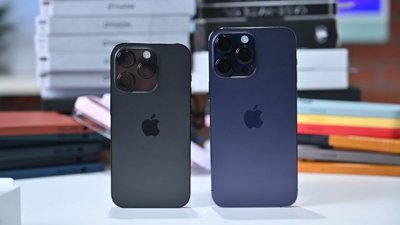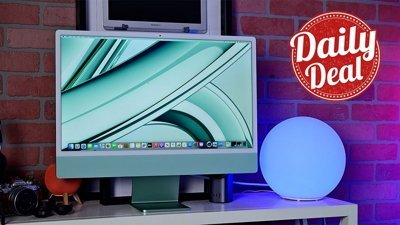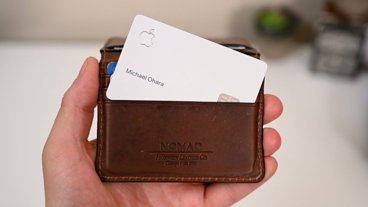Apple may be forced into Verizon iPhone within two years - report
Even as Apple has insisted it's content to give AT&T exclusive access to the iPhone, a closer look at Apple's own devices — and a likely dead-end in growth through its existing carrier strategy — shows that Apple may have little choice but to sell its smartphone through Verizon and other carriers by 2011 at the latest.
As such, Apple under its current tactics is more and more likely to end up selling only to existing AT&T customers and to serve iPhone users replacing their earlier devices, neither of which is likely to grow quickly. Citigroup doesn't see any mobile platform, including Apple's, ever garnering more than a quarter of AT&T's customers and already sees Apple representing as much as 18 percent of the carrier's base by 2010. It may also become increasingly difficult for AT&T to offer more incentives and extend iPhone exclusivity any later than 2011, as the potential for more customers elsewhere may be too strong for Apple to ignore by that year.
The hard ceiling on expansion, in turn, means Apple can't afford to leave money on the table by artificially limiting who can buy an iPhone in the US. Instead of selling to just a fraction of AT&T's 78.2 million customers, Apple is predicted to have access to as many as 150 million customers across Verizon, Sprint and T-Mobile if it chooses not to renew its exclusivity contract. Estimates have Apple's likely actual customer base nearly doubling from 17 million to 30 million users. The Cupertino company would have to accept a hit to its jealously-protected high profit margins but could well generate more revenue in addition to expanding its market share.
That may play into Apple's expressed preference for sticking to one device. While Apple's only avenue to expand the iPod's market share was to release lower-cost models, expanding the iPhone's footprint is described as possible if the electronics giant simply agrees to lighten the steep subsidies it wants on each phone in return for the rights to sell iPhones beyond AT&T.
Technical hurdles that would force a second model are also less likely to be a concern. Notably, Qualcomm is known to be making a hybrid CDMA and Long Term Evolution (LTE) chipset for mid-2010 that would let users make calls on Verizon's existing CDMA phone network but have access to its 4G, LTE-based network when it goes live the same year — and roughly when the current deal is likely to expire. Accordingly, while Apple has publicly decried CDMA as a dead technology, the Qualcomm chip could let Apple take advantage of Verizon's network for at least the next few years — a gain Citigroup sees as likely worth the extra customers it would bring. Verizon alone could add between 10-20 million new iPhone users within 5 years, but it would also open the door to Sprint and would grant access to those few Chinese and Indian cellular networks that depend on CDMA.
And even if Apple doesn't see a multi-carrier deal as a pure revenue grab, it may see the gesture as a purely reactionary move tailored to stifling obvious competitors in the touchscreen phone arena. Palm and Research in Motion both consciously chose to launch their iPhone rivals on CDMA networks where Apple was unlikely to surface and steal their sales; a CDMA iPhone for Verizon (and possibly Sprint) would, the analysts believe, quickly destroy the competitive shelter provided to these phones through networks the iPhone can't touch.
 Katie Marsal
Katie Marsal










 Marko Zivkovic
Marko Zivkovic
 David Schloss
David Schloss

 Malcolm Owen
Malcolm Owen

 William Gallagher
William Gallagher
 Mike Wuerthele
Mike Wuerthele
 Christine McKee
Christine McKee






